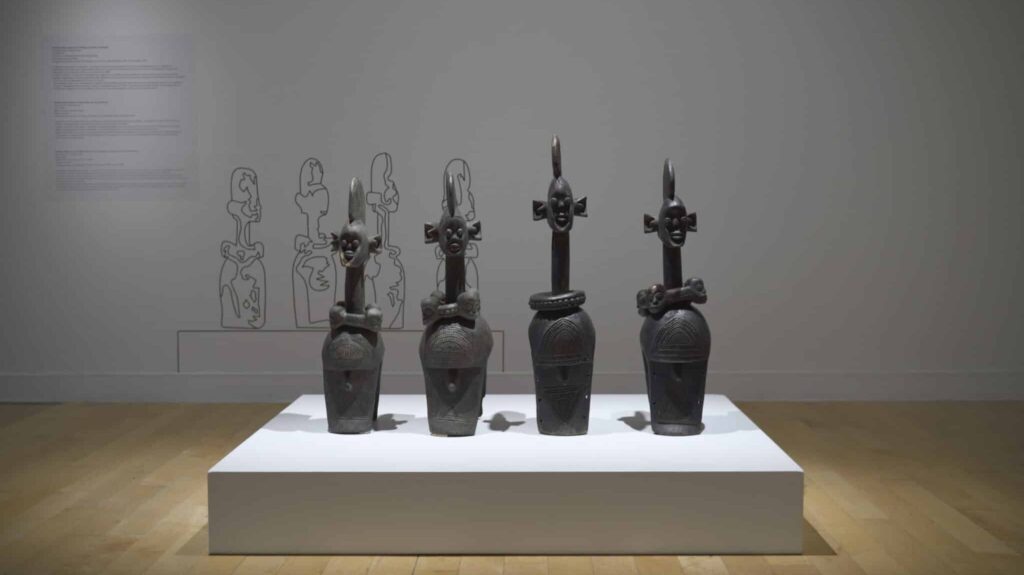The exhibition's bright white room features music by renowned Black Greek musician Mc Yinka.
Visitors have been organized by the Greek immigration forum, listening to speeches, voices and music from people of African origin operating in Greece, and looking at the chronology of the existence of African diaspora in Greece since the 1960s.
The room highlights how Greece's first association of immigrant students was created in the 1960s, and how they participated in popular demonstrations against military dictatorships.
It covers the establishment of the Greek Pan-Africa Association in the 1990s, when advocacy efforts began to convert student visas into residence permits.
It follows the 2002 Greek Immigration Forum and the 2005-2007 black mothers' campaign “Not in Noword to Racism from Baby Beds.”
“We are talking about experiential real history by searching, rather than learning at school,” Aforayan argues.
The timeline includes a variety of important laws, such as the Act 3838/2010 passed in 2012. The law stated that the child of a foreign parent born in Greece should have lived for at least five years, or that at least sixth graders in a Greek school should acquire Greek citizenship from birth.
The timeline also includes the abolition of Law 3838/2010in 2013, which the Greek Council of State deemed unconstitutional.
As a result, immigrant children who complete primary and secondary education in Greece do not automatically receive Greek citizenship. Instead, their “Greek” must be “tested” first.
The written exam model was adopted under another Act 4735/2020, which came into effect in 2021. To many people, questions seem like a knowledge game that even many Greeks can't answer. Income standards are also included as conditions for citizenship.
The exhibition will be closed with Greek ID cards issued to young women of African origins.
Aforayan recalls that he obtained his Greek ID two years ago. His father, who passed away last year, never got it.
“We are not immigrants. I was born here,” he points out. “It's just a term that categorizes me as 'somewhere'. I would like to explain that there are people born here (of African origin). And we look at their history and their identity,” he says of the exhibition.
“Africa is in us, in a way, within us in our lives,” he concludes.
The exhibition will be on display at the Benaki Museum in Athens until May 25th.


